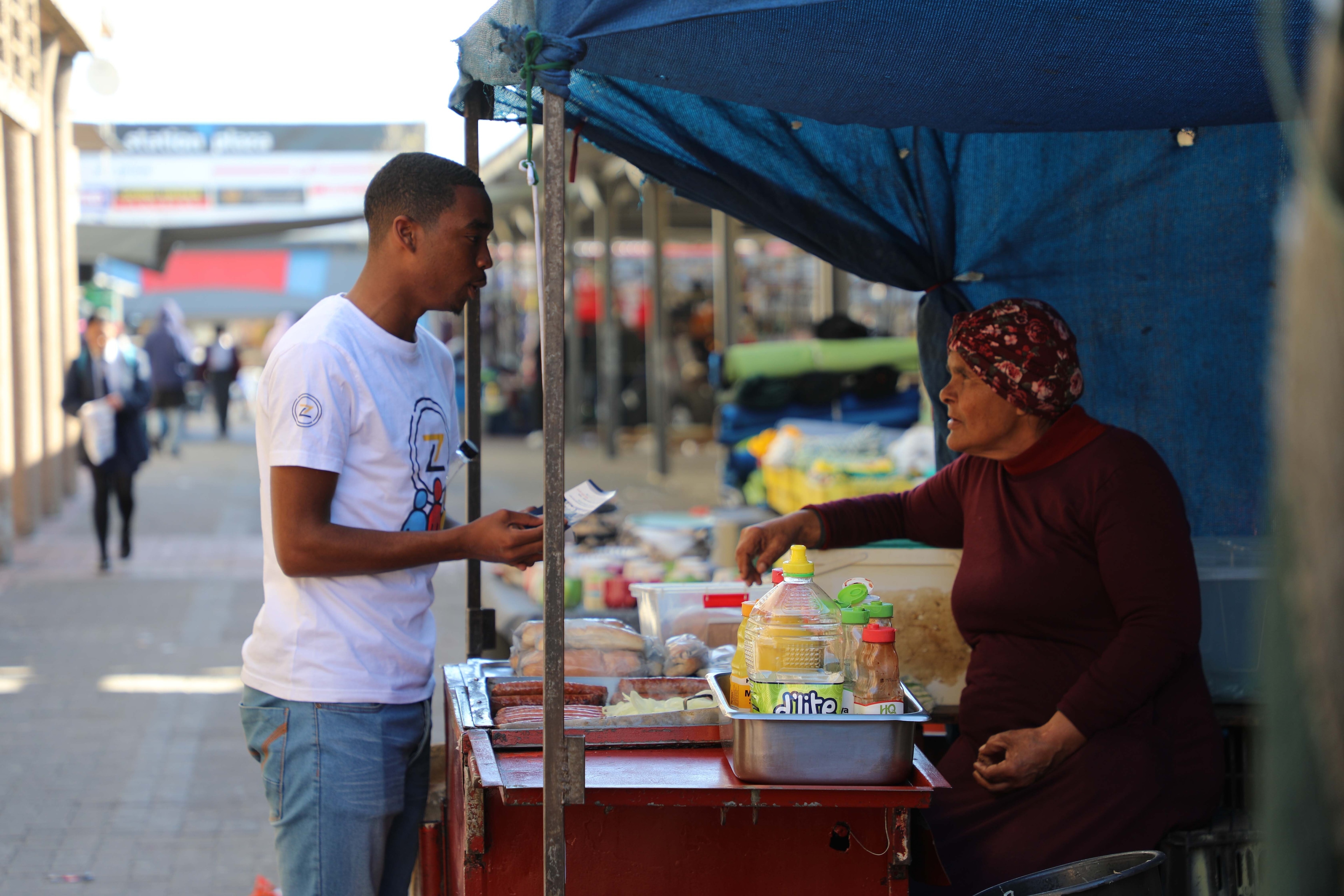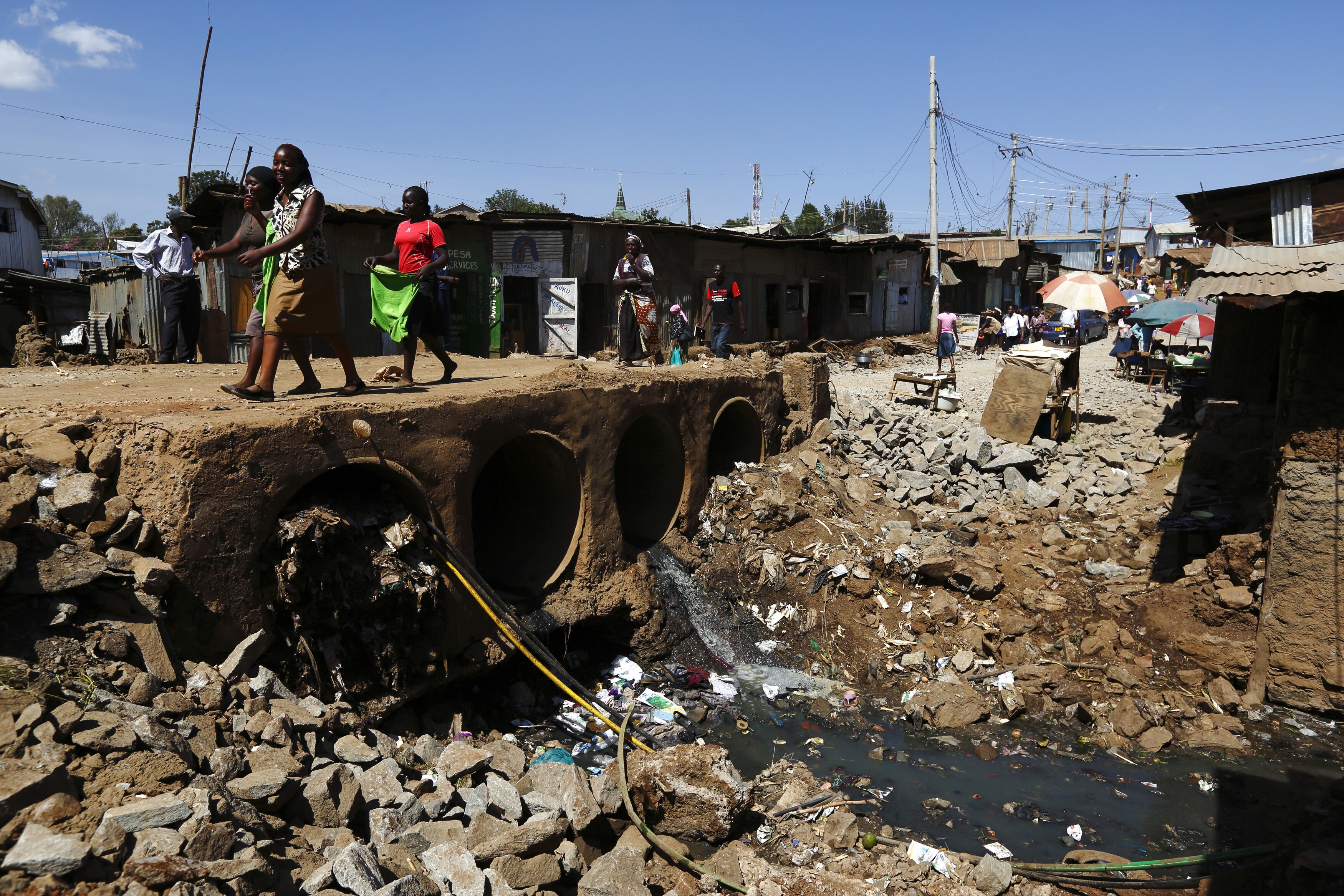What can the private sector do to alleviate the refugee crisis?

Kakuma Camp in Kenya has an economy worth $56 million per year.
Image: REUTERS/Baz Ratner
Stay up to date:
Sustainable Development
Imagine arriving in a city, only to find that most (if not all) of the adults can't work, start a business, or buy goods and services? This is true for most refugee camps in the world.
Forced displacement has reached record highs all over the globe, with 70.8 million people displaced worldwide, according to UNHCR, including refugees, internally displaced persons (IDPs) and asylum seekers. This situation, coupled with protracted refugee situations that have lasted several decades, means that the crisis shows no signs of slowing.
We often hear words like “burden” and “strain” attached to conversations about refugees, but what if we replaced those words with “potential”, “opportunity” and “service”?
Refugees aren’t only refugees, they are employers, employees, entrepreneurs and consumers. However, refugees are also underserved. This is where the private sector can play a central role in creating durable, long-term solutions for both refugees and host communities.
Accept our marketing cookies to access this content.
These cookies are currently disabled in your browser.
‘Private Sector & Refugees: Pathways to Scale’, an International Finance Corporation (IFC) report, produced in partnership with the Bridgespan Group and released in May 2019, surveyed over 170 private sector initiatives in Africa and the Middle East to take an in-depth look at what is working and what needs to happen next.
The study found five main pathways through which firms engage with refugees and host communities:
1) Sharing capabilities such as technology or technical expertise to provide access to humanitarian assistance, education or financial services
2) Extending services by adapting current business models to refugee needs
3) Enabling employment by providing job training and entrepreneurship support to refugees
4) Integrating into value chains by hiring refugees directly or working with smaller enterprises that hire refugees
5) Building a business by selling goods and services tailored to refugee populations

Still, the study found that private firms could be doing much more. Over half the companies surveyed said they would like to increase their business with refugees and host communities, but were being held back by a lack of market intelligence, a shortage of financing, and an inability to find the right local partners.
The market potential is undeniable. In Kakuma Camp in Kenya, a 2018 IFC market study, ‘Kakuma as a Marketplace’, found an economy valued at $56 million a year based on household consumption, along with 2,100 refugee-owned businesses.
In order to realize this potential, however, there has to be a policy environment that enables refugees to work, move and own a business in their host country. Humanitarian and development agencies must work closely with host governments to foster policies, reforms and new financing tools to scale up economic activities with refugees.
The private sector has been on the sidelines of this issue for a long time, but things have started to change over the last couple of years. IFC, for example, has been supporting clients and companies in the Middle East to de-risk and extend their services to refugee communities, as well as in East Africa by setting up the region’s first private-sector-focused refugee platform.
The transition from viewing refugees as core to business, rather than through the lens of Corporate Social Responsibility (CSR) is promising, but gaps need to be filled in a host of sectors, including energy, technology, financial services, education and sanitation.
Perhaps most important of all is a change of mindset. We are at a turning point, and there is an opportunity to engage with refugees and refugee contexts in new and innovative ways. By seeing and interacting with refugees for the entrepreneurs and economic actors that they are, we can collectively promote self-reliance and create durable solutions. The private sector is by no means a cure-all, but it can be a central part of creating long-term solutions.
Don't miss any update on this topic
Create a free account and access your personalized content collection with our latest publications and analyses.
License and Republishing
World Economic Forum articles may be republished in accordance with the Creative Commons Attribution-NonCommercial-NoDerivatives 4.0 International Public License, and in accordance with our Terms of Use.
The views expressed in this article are those of the author alone and not the World Economic Forum.
Related topics:
Forum Stories newsletter
Bringing you weekly curated insights and analysis on the global issues that matter.
More on Sustainable DevelopmentSee all
Katerina Hoskova
August 26, 2025
Thomas Brostrøm and Sandeep Kashyap
August 26, 2025
Ridwan Sorunke and Alyse Schrecongost
August 25, 2025
Thom Townsend
August 20, 2025
Charles Bourgault and Sarah Moin
August 19, 2025
Yufang Jia and William Jernigan
August 18, 2025





